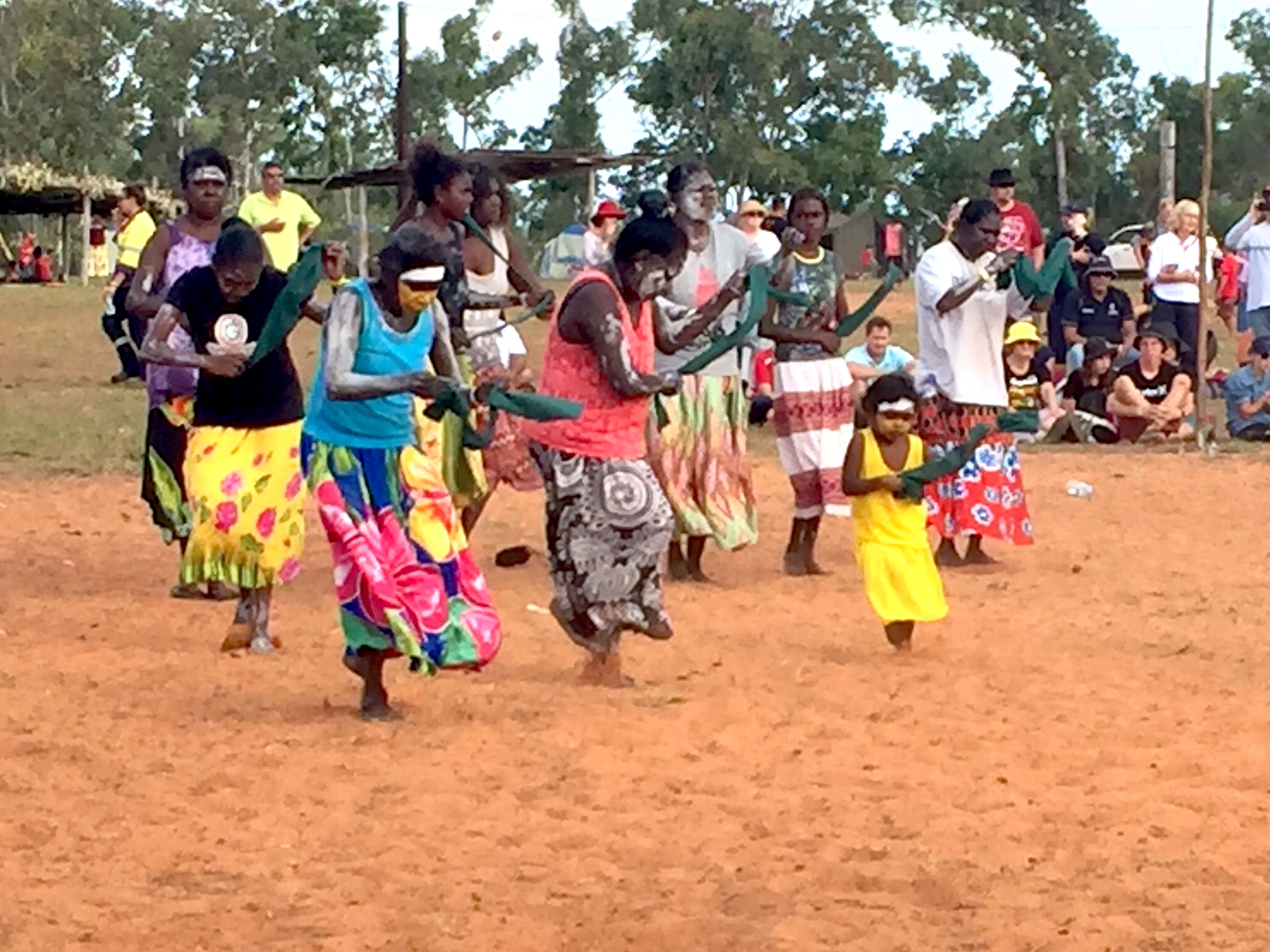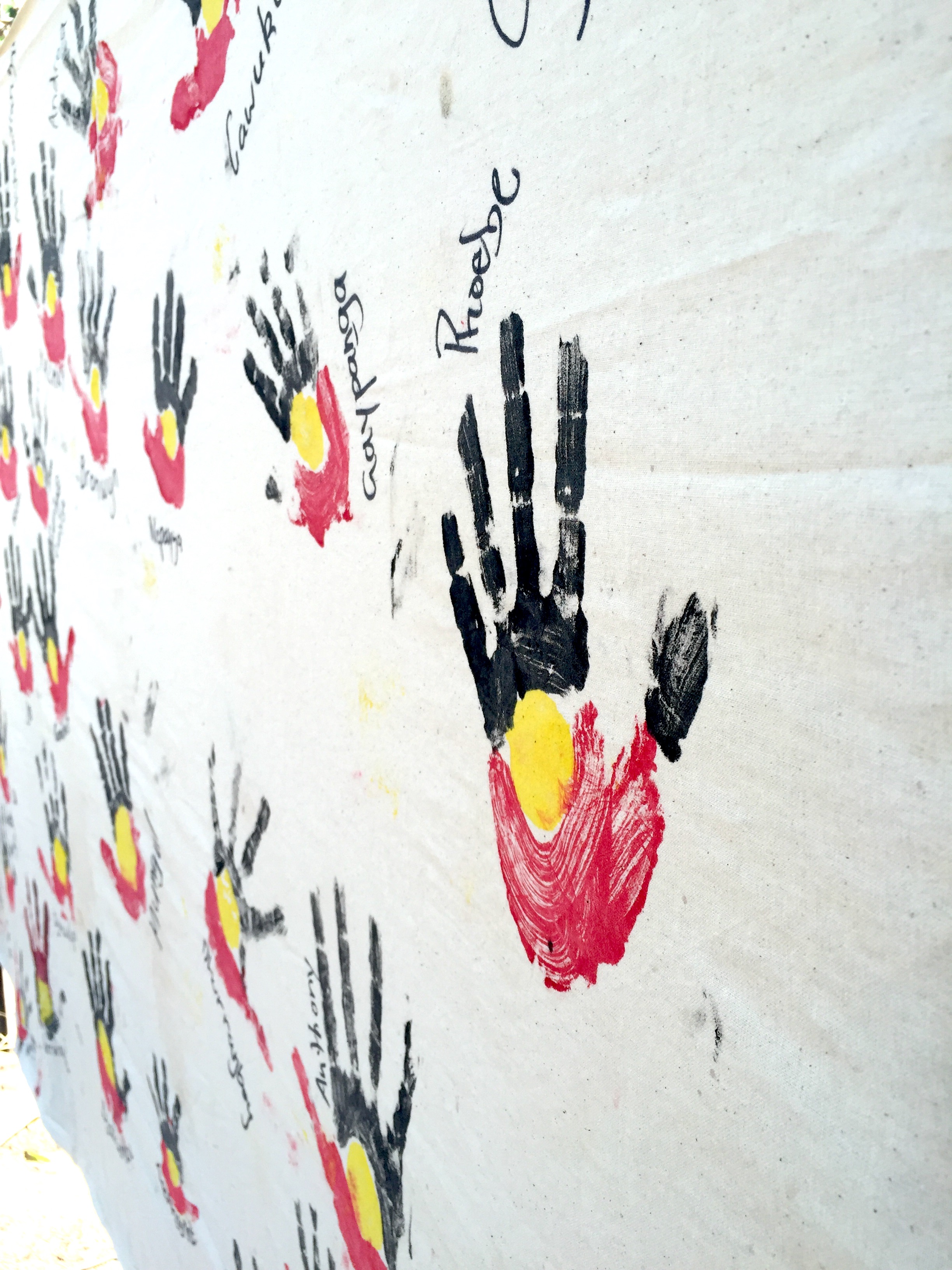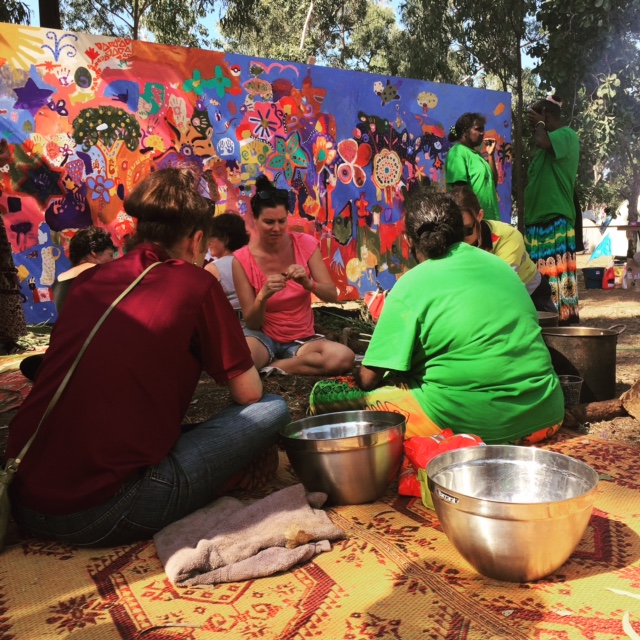Things change in the Northern Territory during the Garma festival. There are Indigenous leaders from all over the country and they are leading the debate on how to shape their future, reap the benefits of their rich cultural and physical resources, and tackle some of the most intractable problems they face.
On the lands of the Gumatj clan of the Yolngu nation, over 2,000 people take part in one of Australia’s unique cultural exchanges. The Yolngu people open up their traditional homelands for other Indigenous and non-Indigenous people. The message is clear: come to Garma, listen to our leaders and elders, and help us to change things. It may have been a fairly straightforward Garma festival, in its 18th year, were it not preceded by a week of anguish, anger, and sorrow over the revelations of abuse of young Aboriginal boys in the Northern Territory’s youth justice system. Hundreds of kilometres from those institutions of trauma, the pain was just as real for the Indigenous people at Garma.
It may have been a fairly straightforward Garma festival, in its 18th year, were it not preceded by a week of anguish, anger, and sorrow over the revelations of abuse of young Aboriginal boys in the Northern Territory’s youth justice system. Hundreds of kilometres from those institutions of trauma, the pain was just as real for the Indigenous people at Garma.

The 18th Garma festival, held in the Northern Territory. Source: Myles Morgan
We must ask ourselves if our humanity exists at all, Aboriginal and Torres Strait Islander Social Justice Commissioner Mick Gooda said.
This misery of institutionalised abuse and the revolving door of incarceration had been happening for decades, Cape York activist Noel Pearson lamented.
Aboriginal people tried to tell us but we didn’t listen, Opposition leader Bill Shorten rued. The shadow of the abuses in the NT justice system hung heavy over Garma. It didn’t dominate every discussion but it permeated almost all of them. It lingered on the edges of debate, sometimes crashing through in an outburst of anger, sorrow or regret.
The shadow of the abuses in the NT justice system hung heavy over Garma. It didn’t dominate every discussion but it permeated almost all of them. It lingered on the edges of debate, sometimes crashing through in an outburst of anger, sorrow or regret.

The 18th Garma festival, held in the Northern Territory. Source: Myles Morgan
Many wondered if federal Indigenous Affairs Minister Nigel Scullion would give his scheduled speech or if NT Chief Minister Adam Giles would show his face at all. The former had said the shocking stories of abuse didn’t “pique” his interest, the latter that he had never seen the vision before it sent shockwaves around the country.
Indigenous academic Marcia Langton facilitated many of Garma’s political discussions and heard some were considering turning their backs on Minister Scullion. Don’t you dare, she warned the audience on Saturday. The Yolgnu had invited him to speak and he would be heard respectfully. When he took to the stage, he didn’t shirk his responsibility for what had happened.
“I'm sorry I wasn't aware of the full circumstances that were exposed this week,” he said.
The Royal Commission into the NT’s youth justice system would be fully transparent and accountable; thorough and comprehensive in its approach, process and recommendations, he assured the crowd.
But many at Garma pondered how it could be when there are no Indigenous Royal Commissioners in the upcoming public inquiry.
In a week when Aboriginal people felt they were being ignored when they proposed solutions to prevent another Don Dale, Garma was a fertile breeding ground of dialogue.
The land is their backbone
Outside of the discussions on the Royal Commission, the actual theme at this year’s Garma was 'the land is our backbone'.
“There are no shareholders,” legendary Yolngu elder Galarrwuy Yunupingu said in opening the Garma festival. The land is, was and always would belong to Aboriginal people.
Unwell at last year’s Garma, a revitalised Mr Yunupingu issued a plea for help. In this fortieth year since the introduction of the Aboriginal Land Rights Act, he said it needed to be “bulkened” up to deliver more for his people and First Nations across Australia.
He found allies across the political spectrum. A revamped Labor party, with Indigenous senators Pat Dodson and Malarndirri McCarthy attending Garma, heeded the call.
“The games go on as if the spoils were theirs,” Senator Dodson said of the whitefella politics in blackfellas’ affairs.
Compensation for Indigenous people over the loss of land and associated wealth is “unfinished business” as well as a means to economic empowerment, Mick Gooda proposed.
It didn’t feel like much of a birthday for land rights in one of the spiritual homes of the land rights movement. But it doesn’t mean there was nothing to celebrate in north-east Arnhem Land. Chief Reuben George of the Tsleil-Waututh Nation in Canada said his spirit was filled and he now considered the Yolngu people his brothers and sisters. The many children who came saw how to make yidakis (didgeridoos), damper, and speak some of the local language. Local Yolngu bands performed every night.
But it doesn’t mean there was nothing to celebrate in north-east Arnhem Land. Chief Reuben George of the Tsleil-Waututh Nation in Canada said his spirit was filled and he now considered the Yolngu people his brothers and sisters. The many children who came saw how to make yidakis (didgeridoos), damper, and speak some of the local language. Local Yolngu bands performed every night.

The 18th Garma festival, held in the Northern Territory. Source: Myles Morgan
In a week of hurt, anger and painful surprises for Aboriginal people, the Garma festival defined itself as a beacon of unity. Indigenous people at Garma are asking if their cries for help and plans for change will be heard by the rest of Australia, or die in the red dust at the borders of the Yolngu nation.
Myles Morgan is a political reporter for NITV and SBS World News.


